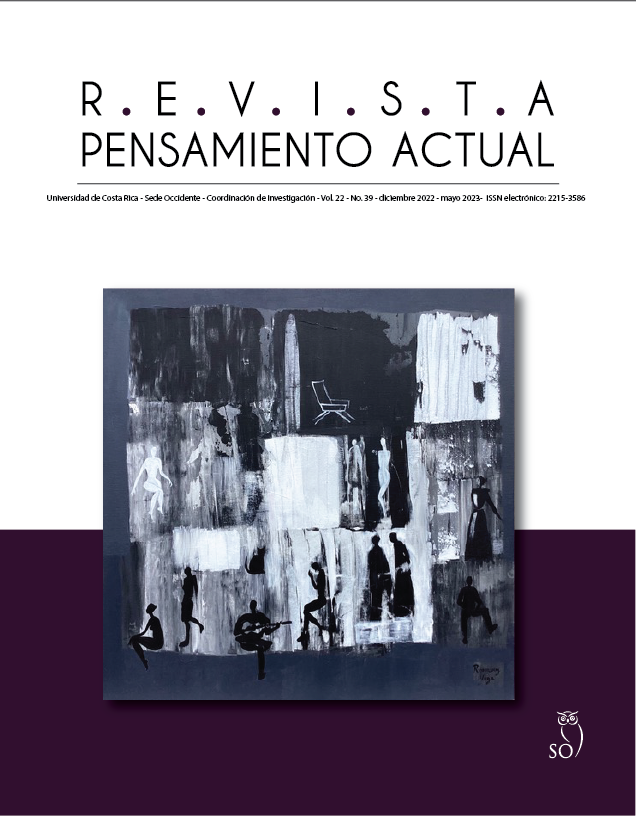Abstract
This article deals with the concept of conscience, its philosophical-moral approaches, and its relations with the birth of the legal figure called conscientious objection through a phenomenological historical journey, in conjunction with the history of human rights, bioethics and biolaw. Reviews the international emergence of parallel concepts that saw the birth of the legal figure. It addresses concepts such as belief and ideology or other meanings such as civil disobedience. As part of its methodology, it historically systematizes the concept of conscience and the historical-philosophical bases that support its defense and its disagreements with certain ethical principles when applying the law. It contains notes that illustrate the current state of the issue from the Costa Rican legal reality, to close with some considerations on conscientious objection, linked to rulings given by the Constitutional Chamber of Costa Rica.
References
Adam, H. (1991). “Civil disobedience”. The case of David Thoreau. Editorial BEDAU, London-New York, Routledge, pp. 28-49.
Bentham, J. (1789). An Introduction to the Principles of Morals and Legislation. University College of London. Inglaterra. Traducción de Bernardo Martín (1821).
Cancino, M. Capdevielle, P. Gascón, A. Medina, M. (2019). La objeción de conciencia. Enseñanza Transversal en Bioética y Bioderecho. Ed. Instituto de investigaciones jurídicas. UNAM. México.
Corte Penal Internacional (2002). Examen histórico de la evolución en materia de agresión. Naciones Unidas. Comisión Preparatoria de la Corte Penal Internacional. Grupo de Trabajo sobre el crimen de agresión Nueva York. https://www.corteidh.or.cr/tablas/r29046.pdf consultado en marzo del 2022.
Corral, H. (2020). Thomas more on the “king’s great matter” Revista de estudios histórico-jurídicos. no.42 Valparaíso. http://dx.doi.org/10.4067/S0716-54552020000100263
Garay, A. (2000). Libertad de conciencia y tratamiento médico: El caso del consentimiento a la transfusión sanguínea. Revista Latinoamericana de Derecho Médico. Medicina. Legal. Jun. Vol. 5 (1): pp. 25-31. Biblioteca virtual del BINASS: https://www.binasss.sa.cr/revistas/rldmml/v5n1/art5.pdf
Greenwood, J. (2011). Historia de la psicología, un enfoque conceptual. McGrawHill. México.
GIB: Grupo Interdisciplinario de Bioética (2012), Consideraciones sobre la objeción de conciencia. Revista Biodebat, Vol. 18, n° 66, pp. 13-19.
López, J. (2007). El alma humana y otros escritos inéditos. Publicaciones de la Universidad de Navarra. ISSN 1137-2176.
Nogueira, H. (2006). La libertad de conciencia, la manifestación de creencias y la libertad de culto en el ordenamiento jurídico chileno. Revista Ius et Praxis, 12(2), 13-41. https://dx.doi.org/10.4067/S0718-00122006000200002
ONU. Pacto internacional de derechos civiles y políticos. Recuperado de: https://accesoalajusticia.poder-judicial.go.cr/index.php/normativa-privados?download=1174:pacto-internacional-de-derechos-civiles-y-politicos
Asamblea legislativa: Proyecto de ley para la libertad religiosa y de culto. Expediente nº. 19.099: http://proyectos.conare.ac.cr/asamblea/19099.pdf, consultado en marzo, 2022.
Quijano, M. (2009). La conciencia. Revista de la Facultad de Medicina de la UNAM. Diciembre, vol. 52 no. 6, pp. 241-243. México. https://www.medigraphic.com/pdfs/facmed/un-2009/un096a.pdf, consultada en marzo, 2022.
Sistema Costarricense de Información Jurídica de la procuraduría general de la república: http://www.pgrweb.go.cr/scij/avanzada_pgr.aspx, consultada en febrero y marzo, 2022.
Vidal, F. (2002). Del ius romano a los derechos humanos en la convención americana. Gaceta Jurídica. Perú. Biblioteca virtual de la Corte internacional de derechos humanos.
West, P. Badal, G. Christie, C. (2006). Conjoined twins: bioethics, medicine and the law. West Indian Medical Journal. Mar, No. 55 (2), pp. 123-124.
##plugins.facebook.comentarios##

This work is licensed under a Creative Commons Attribution-NonCommercial-ShareAlike 3.0 Unported License.
Copyright (c) 2022 Pensamiento Actual

